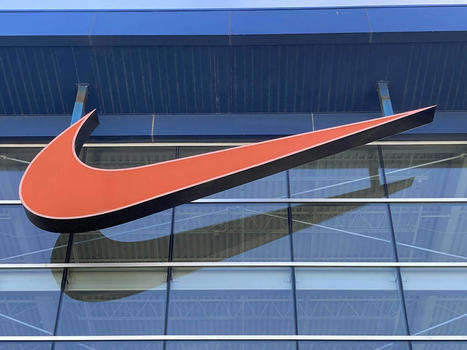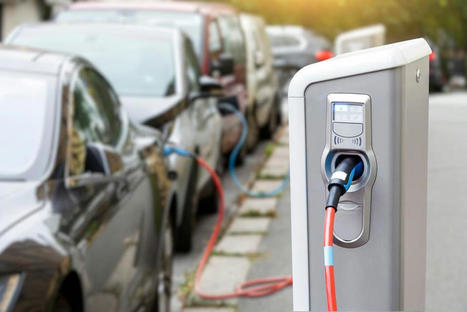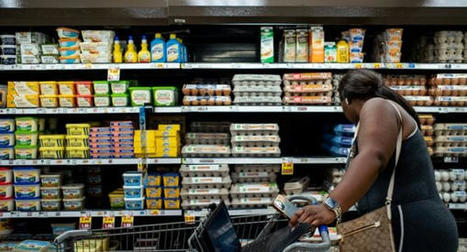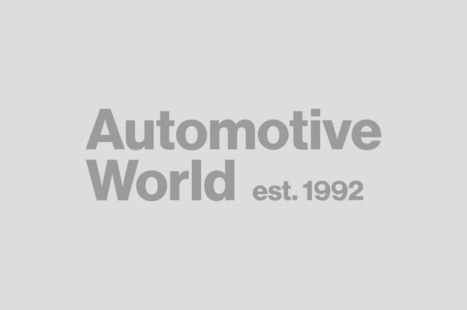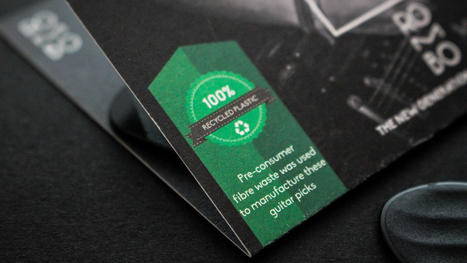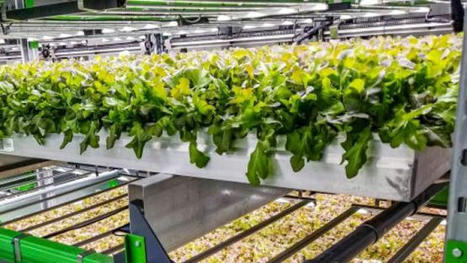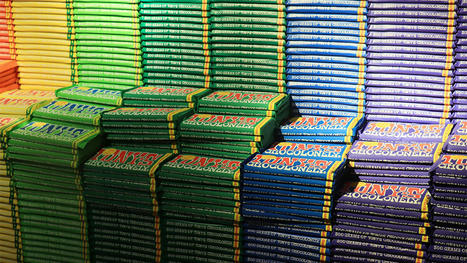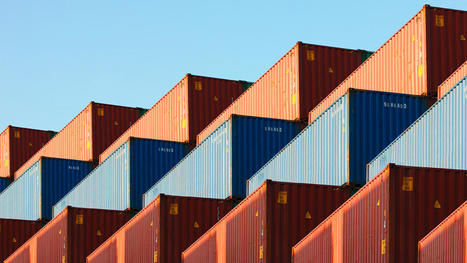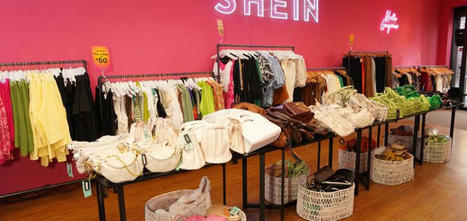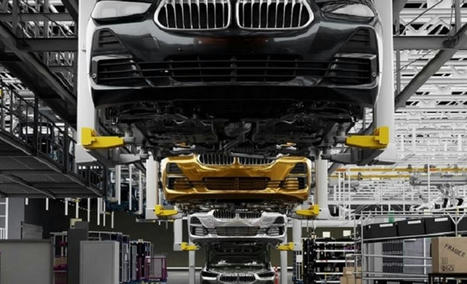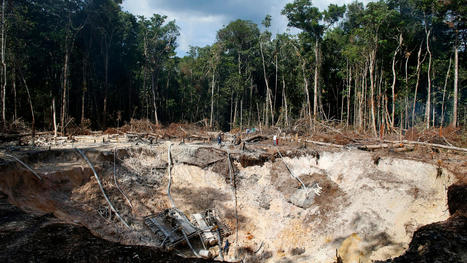 Your new post is loading...
 Your new post is loading...
After years in the making, Canada’s Modern Slavery Act will soon be in effect. Those within the scope will need to prepare public annual reports on their efforts to eliminate forced or child labor use in their value chains. First reports are due as soon as May 31, 2024.
What is the Canada Bill S-211 and how will it impact your supply chain due diligence and disclosure? The snapshot outlines what is covered, who is in scope, and how to prepare for compliance.
Via EcoVadis
The obligation to comply with supply chain regulations from the EU Supply Chain Act to a draft of US supply chain due diligence laws is spurring firms to rethink sourcing, supply chain, manufacturing policies, and supporting applications. In addition, the US and the EU alone are currently spending $1.4 trillion on environmental sustainability and climate adaptation. There’s also $17.5 billion in VC funding for green tech, and the global market for green financial instruments is $658 billion. These regulatory and investment initiatives provide your firm with opportunities to reassess your supply chain to focus on enhancing sustainability of critical processes such as monitoring supplier labor practices and diversifying supplier geographical risk.
Via EcoVadis
A Nike shareholder is asking the company to take stronger action to protect human rights for its garment workers.
Tulipshare, which currently owns 276 Nike shares, filed a shareholder proposal that asks Nike’s board to assess and rethink how its supply chain upholds the company’s committments to human rights.
The proposal requests a report from Nike that details if the company’s supply chain upholds these values — and asks Nike to use specific metrics to track perfomance on forced labor and wage theft. Tulipshare also asked Nike to consider using a model contract clause from the American Bar Association (ABA) that protects human rights for workers in the supply chain.
“We are asking Nike to implement these clauses into all of its supply chain contracts, which will not only make human rights policies into ‘operational commitments’ but also continue to allow Nike to be leaders in supply chain innovation moving forward,” read an explanation of the proposal.
Tulipshare said that Nike acknowledged the receipt of the proposal, which was submitted on Thursday. FN has reached out to Nike for a comment.
According to Tulipshare CEO and founder, Antoine Argouges said Nike’s current reporting methods, including its annual Impact Report, do not adequately analyze how it addresses potentially using Uyghur forced labor in its supply chains.
Via EcoVadis
As electric vehicles (EVs) supplant gas-fueled cars, companies across the automobile supply chain are collaborating to create the circular economy that will reduce carbon emissions and lead to sustainable business models. Suppliers are already co-innovating across boundary-breaking ecosystems, while as-a-service offerings are delighting drivers and business partners with new experiences.
Via EcoVadis
In the new year, German companies will be forced to monitor their supply chains more strictly.
On January 1, the new Supply Chain Act comes into force, a piece of legislation that dates back to Angela Merkel's time as chancellor. As a result, companies with more than 3,000 employees will be required to comply with certain obligations for their entire supply chain.
According to the Development Ministry, about 900 German companies will be affected. From 2024, the law will also apply to companies with more than 1,000 employees.
Among other things, the companies concerned must carry out a risk analysis, introduce risk management and a complaints mechanism, and report on these measures publicly. In the event of violations within the business or by direct suppliers, companies must take appropriate action.
Via EcoVadis
The FDA published its final rule about new traceability protocols for a variety of food products vulnerable to contamination. People who manufacture, process, pack or hold foods including produce, cheeses, eggs, nut butter, seafood and deli salads will be subjected to new recordkeeping requirements during production and along the supply chain.
The compliance date for the new requirements is Jan. 20, 2026. The law makes exemptions for small farms, stores and foodservice entities, as well as some foods that are treated to reduce contamination and produce that is rarely consumed raw.
Traceability technology has long been touted as a way to identify contaminated food and ingredients quickly in the system. The FDA has said this kind of program can make the U.S. food system safer.
Via EcoVadis
The BMW Group is systematically pursuing its climate goals for the supplier network and significantly reducing the carbon footprint of its steel sourcing. Following initial contracts with European suppliers, the BMW Group has now concluded further agreements for the supply of CO2-reduced steel in the US and China.
“Steel is one of the main sources of CO2 emissions in our supply chain. That is why we are comprehensively reorganising our steel portfolio – so we can supply our global production network with over on third of CO2-reduced steel from 2026. This will reduce the carbon footprint of our supply chain by 900,000 tonnes per year, while at the same time driving the transformation of the steel industry,” said Joachim Post, member of the Board of Management of BMW AG responsible for Purchasing and Supplier Network.
Via EcoVadis
In the last two decades, many companies have made pledges to eliminate deforestation from their supply chains. Have these pledges been effective? New research published in the scientific journal Environmental Research Letters shows that when it comes to sourcing soy from the Amazon region, zero-deforestation pledges (ZDP)—made in support of Brazil’s Soy Moratorium, which banned sourcing soybeans produced on deforested land after 2006—have been mostly ineffective.
Conducted by researchers from the University of Cambridge, Boston University, ETH Zurich, and New York University, the research found that ZDP pledges were made by at least 94 companies through 2021, and the majority of these were not effectively implemented.
From 2006 to 2015, researchers found that these pledges reduced tree clearance in the Brazilian Amazon by only 1.6 percent—or approximately 2,300 km2, or an area that is smaller than Rhode Island, the smallest US state. After fossil fuels, deforestation is the second largest contributor of greenhouse gas emissions.
Via EcoVadis
New Japanese government guidelines on business and human rights mean that Japan’s car industry should accelerate efforts to clean up their supply chains. Japan’s carmakers are gradually embracing the transition to electric vehicles, which could help shrink the country’s destructive climate footprint. Although Japan gets more than two-thirds of its electricity from fossil fuels, electric cars still have a smaller carbon footprint than gas vehicles. When it comes to human rights, however, electric vehicles are problematic. The materials needed for car batteries and other parts are linked to global human rights and environmental harms. Japan’s three largest carmakers – Toyota, Nissan, and Honda – all scored poorly in the 2020 Corporate Human Rights Benchmark, which ranks companies on their global human rights performance. Japan’s new business and human rights guidelines, released September 13, are nonbinding and need significant improvement, but make clear that Japanese companies should identify human rights abuses in their supply chain and work with their suppliers to fix them.
Via EcoVadis
The voluntary guidelines, published by the BRC, outline the steps retailers can take to adhere to circular economy principles. By following this circular model, the BRC says retailers will further the progress they have already made to lengthen the lifecycle of the products they buy.
As part of the guidelines, it explains clothing, footwear, homeware textiles, and other items, retailers can promote resale markets and platforms; use hire and rental subscription services; and offer product swaps, upcycling and repair schemes, instead of throwing away items.
The guidelines also emphasise the importance of quality checks, which “clearly informs” the customer of the item’s condition. They also clarify that its aim is not to promote the circulation of perfect items, but rather to circulate all items, “safe in the knowledge” that both buyer and seller have the same level of information and expectation of their condition.
Retailers recognise the role they can play in helping their customers shop in more environmentally friendly ways.
The UK trade association explains that its long-term goal is to limit, and ultimately end, the sending of items to landfill unnecessarily and to keep them in circulation for longer so that they can be used and loved by more people.
The BRC says it is already working with retailers on their journey to Net Zero through their Climate Action Roadmap. Supported by over 80 major retailers, it is the Retail Industry’s commitment to reduce industry and supply chain carbon emissions to zero by 2040.
Chief Executive of the BRC, Helen Dickinson OBE, said: “We are delighted to launch our first voluntary Guideline on second-hand and preloved items. With more people looking for ways to shop sustainably, particularly as the cost of living rises, the sale of second-hand items in-store and online can encourage sustainable behaviours at affordable prices and take us one step further towards a circular economy.
“Retailers recognise the role they can play in helping their customers shop in more environmentally friendly ways, and we hope that this Guideline will help many on their sustainability journey.”
Via EcoVadis
We are in the midst of a real-time, seismic shift as consumers transform expectations of global supply and demand models. The pandemic exposed the fragility of many supply chain networks. An inability to sense and dynamically adjust to shifting demand signals, consumer preferences, labour requirements, transportation, storage, inventory and trade policy changes caused havoc to economies and brands around the world.
According to McKinsey, “Investments in technology and automation in distribution centres are now at the forefront of most Chief Supply Chain Officers’ agendas.” Gartner recently upped its supply chain management technology forecast from 8% to 14% in compounded annual growth rate – forecasting a $28 billion investment by 2025.
Retailers are racing to transform store, digital, fulfilment and service experiences in an effort to win over omnichannel consumers, boost employee productivity and increase profitability, all the while trying to balance increasing environmental requirements.
Digital transformation initiatives have kicked into high gear across supply chains, too, allowing brands to reap the benefits of cloud, composable IT architecture, microservices and AI in efforts to better match supply with demand.
Via EcoVadis
Environmental, Social, and Governance (ESG) is shaping up to be the corporate mantra of the 2020s, with the majority (83 per cent) of Australians concerned about climate change, according to the annual Ipsos Climate Change Report 2022.
In Europe, we have seen the introduction of supply chain legislation that will make companies accountable for the behaviour and performance of their suppliers in a way never seen. As is the way of these things, we will no doubt be seeing a similar legislative effort on our own shores in the near future.
The way we view our responsibilities as corporations, from the board down, is shifting. But this change has been slow. Current measures are not enough, on their own, to push corporate Australia down the necessary path to Net Zero.
Board buy-in is necessary
Only 18 per cent of businesses have set a Net Zero goal, and of those businesses that have set a goal, only 21 per cent are taking steps to achieve it, according to research at Energy Action. That’s a fraction of the buy-in that we need.
Via EcoVadis
The country’s most sustainably minded retailers are placing more of an emphasis on sourcing — by both boosting locally and sustainably produced food and by requiring stricter environmental standards from their suppliers. This ranges from sourcing more sustainable seafood, including canned tuna, to ensuring that beef is being produced with no deforestation. Palm oil, coffee, eggs, soy and pulp are other commodities that are being more closely watched by grocers to ensure sustainable production.
In fact, the 2022 Sustainability Barometer released by London-based Mintel finds that from a global consumer perspective, concerns about water and food shortages are now being prioritized ahead of previous preoccupations with waste and plastic. Therefore, it makes sense for grocers to include messaging about their efforts in more sustainable sourcing and in combating climate change.
Several retailers, including Batavia, Ill.-based Aldi US, are committing that all of the fresh, frozen and farmed seafood they purchase will be third-party certified as sustainable or from fishery improvement projects by the end of 2025. Meanwhile, expect to see more of these grocers ramp up tracing efforts so that customers will also recognize their efforts in sustainability.
Via EcoVadis
|
Supply chains in commodity industries are often characterized by social and environmental abuse. In the cocoa industry, for example, the average farmer cultivates between three and five hectares to earn less than two dollars a day. It is an environment rife with social and environmental abuse. In this article, the authors look at the experience of Tony’s Chocolonely, a Dutch chocolate brand founded in 2005, which set itself a mission to sell 100% slavery-free chocolate. They show how Tony’s brought its supply chain partners together to create an altogether new paradigm in which all actors take responsibility for social impact. And it really works: Tony’s profitably sells around $130 million worth of slavery-free chocolate bars in Western Europe and the U.S.
Via EcoVadis
The construction industry, like other industries with complex and international supply chains, is vulnerable to the risks of modern slavery. Around the world, millions of people are affected by modern slavery, with victims subjected to forced labour, human trafficking, and other forms of exploitation.
In recent years, the UK has put forward measures to address this issue, including the Modern Slavery Act 2015. However, findings show that efforts to combat modern slavery in the country are waning. Those of us with ties to the construction industry are clear on the urgent need for renewed focus and commitment to this critical issue.
The Current State of Modern Slavery in the UK
An analysis by the Chartered Institute of Procurement and Supply (CIPS) reveals that only 29% of organisations required to produce a modern slavery statement submitted it to the UK government registry in 2022. This is a 46% drop in submitted statements compared to the previous year. Despite the risks of modern slavery abuses in the UK, not enough companies are adequately disclosing anti-slavery measures within their supply chains.
Via EcoVadis
The Department for Environment, Food and Rural Affairs (Defra) has published a summary of responses to its consultation on contractual practice in the pork supply chain, setting out its next steps, which address most of the key asks that the National Pig Association (NPA) put forward in October 2022.
The NPA said it is pleased to see that Defra has agreed to take the following next steps, addressing the majority of the eight key asks NPA set out in the response:
We will share our findings relating to the alleged negative consequences of market consolidation with the Competition and Markets Authority (CMA).
The UK government will commence work developing regulations for pig contracts, using the regulation making power in section 29 of the Agriculture Act 2020 (this covers fair dealing obligations of business purchasers of agricultural products).
These regulations will ensure written agreements are used between all producers and their buyers. We will work closely with industry to explore what other provisions, if any, should be mandated as part of these agreements.
We will continue to engage with stakeholders to ensure that legislation works for all parts of the UK and incorporate special provision for differing circumstances, if necessary. Where there is no minister in place, as in Northern Ireland at present, we will continue to work closely with government officials.
We will also develop regulations to collect and disseminate more supply chain data, particularly in relation to wholesale price transparency and national slaughter numbers. We will use the powers in sections 23 to 28 of the Agriculture Act to create such provisions in England. We will work with the devolved administrations on this issue, as this is a devolved matter.
Via EcoVadis
More than 50 percent of fashion decision-makers say traceability will be a top-five enabler to reduce emissions in their supply chains, according to BoF and McKinsey & Co’s State of Fashion: Technology report. It is an essential tool to meet consumer and shareholder expectations around improving sustainability endeavours.
Technology platform FibreTrace offers real-time verification of products as they move through the global supply chain.
Via EcoVadis
As EU member states close in on a common negotiating position on the Corporate Sustainability Due Diligence Directive (CSDDD), they are fighting over whether companies should do due diligence for their entire value chain or just the supply chain.
The directive initially proposed by the Commission on 23 February 2022 would require member states to introduce legislation making companies responsible for violations of human rights and environmental standards along its entire value chain.
This would mean that a company would have to conduct due diligence on its suppliers and clients, and it could also be held liable for how its product is used and disposed of.
Via EcoVadis
Realizing that their supply chains cannot be made totally immune to disruptions, a number of automakers have adopted a number of strategies to protect their businesses. They include: delivering a “good enough” product to consumers, developing better systems for monitoring the supply chain nodes that matter most, resisting the urge to centralize decision-making for supply chain issues, identifying pragmatic ways to ensure supplies of crucial resources, and turning scarcity into a virtue by turning the inventory problem into a business opportunity.
As the frequency and magnitude of supply chain disruptions continue to grow, it would be understandable if business leaders’ first instinct is to respond by trying to correct every single flaw or mistake, no matter what it takes, so each disruption never happens again. But it’s becoming increasingly clear that a 100% resilient supply chain is unattainable. Rather, pragmatism and adaptability are proving far more effective.
Via EcoVadis
Ford Motor Company and Manufacture 2030 announced today a strategic partnership to help Ford’s suppliers meet their carbon reduction targets toward Ford’s goal of reaching carbon neutrality no later than 2050 globally, and by 2035 in Europe.
“Achieving carbon neutrality for Ford is an important corporate goal and integral to our purpose to help build a better world,” said Jonathan Jennings, Ford Global Vice President, Supply Chain. “It is becoming a strong demand from our customers, shareholders and investors, and the supply chain is essential in achieving this goal. Hitting our targets will require we cut emissions across our entire value chain, particularly from purchased energy, goods and services. M2030 is a key program for Ford to help us all in not only reporting emissions but in forming realistic action plans and glidepaths to achieving our goals.”
In the first phase of the partnership with M2030, Ford is offering the voluntary platform to its more than 5,000 Tier 1 global supplier sites covering more than 66 countries, including suppliers who have yet to establish science-based carbon reduction targets. M2030’s platform can help suppliers identify which actions to take to measure, manage and reduce carbon emissions and reduce costs as they build their carbon neutrality plans.
Via EcoVadis
Online retailer Shein plans to cut emissions across its supply chain by 25% by 2030, the company announced in September.
The targets are among the first public steps to cut carbon emissions for the company, which has become a formidable player in the U.S. fast fashion market. The growth has come with a heavy carbon footprint. Last year, Shein’s operations produced 6.3 million tons of carbon dioxide emissions.
“Today we’re taking a significant step forward, announcing a new set of 2030 goals that will help us accomplish emissions reduction targets for our entire supply chain over the next seven years,” said Adam Whinston, global head of ESG at Shein.
As part of its efforts, Shein set a series of sustainability goals using 2021 data as a benchmark, compiled as a greenhouse gas emissions inventory with the help of certification company Interek. The retailer outlined reduction targets for each emissions level, which includes working with hundreds of suppliers to implement greener practices.
BY THE NUMBERS: SHEIN’S EMISSIONS GOALS
42% - Percent by which Shein aims to reduce its scope 1, owned-operations emissions by 2030
500 - The number of partner facilities Shein and the Apparel Impact Institute will work with to implement energy-savings programs, as part of its scope 3 emissions targets
25% - The percent by which Shein aims to reduce its scope 3 emissions by 2030
Via EcoVadis
Long after the pandemic and a host of other disruptions delivered a fatal blow to lean supply chains, consumer packaged goods (CPG) manufacturers are determined to gain the visibility they need for resiliency – with good reason. IDC analysts predicted that by the end of this year, half of all manufacturing supply chains will see the benefits of supply chain resiliency, resulting in a 10% reduction in disruption impact. Gartner researchers found the top two business drivers for digital supply chain strategy were to improve the customer experience (97%) and reduce costs (98%).
“There isn’t a CPG manufacturer who would disagree that having visibility across their supply chain is paramount to resilient business during these disruptive times,” said Stanko Simonski, CPG industry value advisor at SAP. “The question is how to close the gap between the vision and reality. Market leaders are gaining the visibility to first, understand what’s likely to happen and how they need to respond, and second, act on the decisions they’ve made.”
Via EcoVadis
The auto industry's drive to a greener and cleaner future is a treacherous road for companies in its beleaguered supply chain. Only the strong and the shrewd may survive.
Many auto suppliers, already squeezed by rampant inflation and energy prices, say they have little choice but to shoulder the extra costs of making their components sustainable to meet automakers' environmental targets.
"If you do not, you are not going to have a business in five or six years supplying major carmakers," said Shane Kirrane, commercial director at Autins Group, which has plants in Britain, Sweden and Germany that make acoustic and thermal insulation for cars.
All major automakers have committed to green targets, seeking to purge dirtier materials from their supply chains to satisfy regulators and investors as they transition to electric vehicles.
BMW, for instance, expects all of its battery and many of its steel and aluminum providers to produce materials made using renewable energy, while Volvo is targeting 25 percent recyclable plastic in its cars by 2025.
Many suppliers are consequently making large investments to green up their acts, from developing recyclable parts to hooking up their businesses to renewable energy, according to interviews with more than a dozen industry players.
Via EcoVadis
Last week, a special rapporteur investigating the use of mercury in small-scale gold mining and a UN fact-finding mission on Venezuela presented separate reports to the council on the impact of gold mining on many communities and the environment, particularly in the Amazon basin.
UN investigators cited human rights abuses such as sexual exploitation of women and children, mercury poisoning and child labour affecting communities where illegal gold production occurs, and pointed the finger at the responsibility of countries buying the metal.
The reports said global buyers such as Switzerland – through which roughly two-thirds of global trade transits – need to ensure that human rights are respected throughout supply chains.
Via EcoVadis
Data, insights, visibility and the ability to respond quickly are key to gaining a competitive edge, according to speakers at Digital Procurement World. When it comes to dealing with global supply chain challenges, having data, insights and visibility to be able to react more quickly are helping companies gain a competitive edge, according to speakers during a session on the power of intelligence at the first day of Digital Procurement World in Amsterdam on Wednesday.
Via EcoVadis
|



 Your new post is loading...
Your new post is loading...




